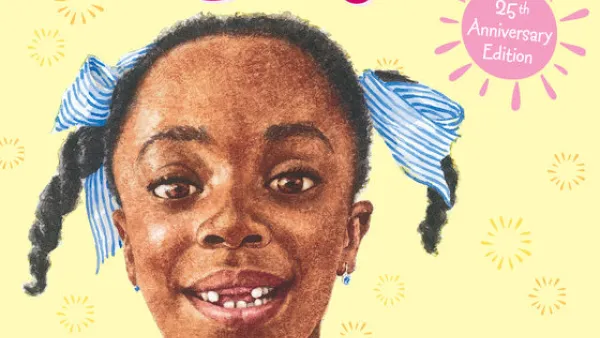Rebecca Wanzo is associate professor of women, gender and sexuality studies and associate director of the Center for the Humanities.
As the success of Jordan Peele’s 2017 film Get Out demonstrated, audiences recognize that the everyday experience of blackness in America is fertile ground for the horror genre. Other writers and artists have noted this before Peele, with creators such as Bill Gunn (writer and director of 1973 cult classic film Ganja and Hess) and author Tannarive Due (My Soul to Keep) telling stories that speak to the nexus of tragedy, fear and the grotesque that are at the heart of horror and, all too often, African-American life.

But while many works of black horror are not well known, author Victor LaValle has been receiving well-deserved national attention. On the one hand, many people would consider it reductive and possibly an insult to place some of LaValle’s work in the category “horror fiction,” as genre fiction is so often treated as the antithesis of the literary. LaValle does indeed write “literary fiction,” but to ignore the contributions he makes to American horror fiction would be a willful blindness to his knowledge of and engagement with this tradition. At its best, the horror genre is a site to explore cultural anxieties and fear. Its excesses are sometimes supernatural, and at other times it imagines the worst possible, excessive scenario for everyday risks and disasters.
One of the things horror can do well, and at which LaValle excels, is misrecognition. The murder victim thinks the sound the stalker makes is just the wind. We are not quite sure what uncanny thing we are seeing in the frame. Someone seemingly benign is the “big bad” after all. Part of LaValle’s last three works have been about monsters and monstrous acts, and he plays with the idea that we know monsters when we see them. In my favorite of his works, The Ballad of Black Tom (2016), he retells an infamous H.P. Lovecraft short story that trafficked in xenophobia and racist images. Racist state violence is the monster that stalks and torments the protagonist. Tommy Tester is an African-American hustler in 1920s Harlem, the kind of man the police treat as born bad. But as readers, we know he loves his father, and is, like many young people, simply trying to make his way. When life takes horrific turns, we find ourselves rooting — because fiction allows us to have such desires — for Tommy to take his vengeance. We root for acts that are quite literally monstrous, because the persecution of Tommy warrants retribution.
That we know who the monster is becomes a significant sleight of hand in American Book Award–winner The Changeling. Cultural narratives of bad parenting take surprising turns in a novel that, like Black Tom, has a relationship between parent and child at the emotional center. The love of parents for their children is also at the center of his comic book Destroyer (2017), the tale of a brilliant African-American woman scientist who (spoiler alert) reanimates her 12-year-old son after he is killed by police. This modern-day Frankenstein tale was published on the 200th anniversary of Mary Shelley’s original novel, and like its inspiration, the vulnerability and morality displayed by the monster are designed to place a broader cultural ethics in question.
Often described as a Frankenstein update for a Black Lives Matter moment, Destroyer often has scenes in which the everyday dialogue we would associate with parenting is paired with the jarring images of illustrator Dietrich Smith. Cute is undercut with the grotesque representation of the reanimated dead child, and we are reminded of how the everyday can be made harrowing by violence and so many people’s refusal to see black boys as children. The horror lies in not only what we see, but recognition of what people do not see and the cost. It lies in what happens to his mother, unmade and transformed, by the murder of her son.
Despite the tragedy and rage in these stories, LaValle’s horror is distinctive in not leaving readers with a feeling of empty dread and despair. While horror can be a pessimistic genre — the monsters, we know, almost always come back — all of LaValle’s works imagine a future for survivors. Crafting narratives of hope in the midst of the horrific is perhaps his biggest sleight of hand of all in his fiction, and why his work may resonate as people try to imagine ways out of hopelessness when everyday horror permeates their lives.
“Making Monsters: A Conversation and Reading with Victor LaValle”
Wednesday, October 31, 7 pm
Washington University
Women’s Building Formal Lounge



